Meet Dr. Osvaldo Gutierrez
Chemist
Born in Mexico, Dr. Osvaldo Gutierrez came to the United States initially as an undocumented immigrant. He received his BS and MS degrees at UCLA and studied his PhD at UC Davis. He went on to acquire a postdoc position at the University of Pennsylvania, and became an assistant professor of Chemistry at the University of Maryland. His research group utilizes both computational and experimental chemistry to design systems and chemical methods to accelerate the development of new medicines. He is now moving to Texas A&M University.
STEM to the Sky
Aug 17, 2021
- Have you always been interested in STEM as a child?
- What was the biggest obstacle you had to face along your STEM journey?
- How did your experiences in college and graduate school influence your career today?
- Can you share about a current project your lab is working on?
- Can you walk us through a typical day in the life?
- Is there anything that surprised you about your field?
- What is the most rewarding aspect of being a chemistry professor?
- What is the most challenging aspect of your career?
- What advice would you give to a student who is interested in going into STEM?
- Do you have any recommendations for students who are interested in going into chemistry?
Have you always been interested in STEM as a child?
I was always fascinated by how things work. But, as a child, my goal in Mexico was really to become a shepherd and manage 100-200 sheep. I needed to learn as much as I could about how to take care of sheep, including breeding and feeding them.
Once we immigrated to the United States, I started becoming more interested in science. Initially, I wanted to do research because I wanted to become a medical doctor. As part of the application process, they want you to do volunteering activities and some research, so I figured I needed that research part in my resume. But, once I got into research, I found my real passion. I just wanted to be there all the time. Afterwards, I didn’t want to go to classes or volunteering activities. I just wanted to be in the lab and try to figure things out.
If you get an opportunity to do scientific research in a lab, that could really change the way you approach science and might even solidify your own career path. Whether you want to be an engineer, a doctor, or a lawyer, it might really set you apart at that stage.
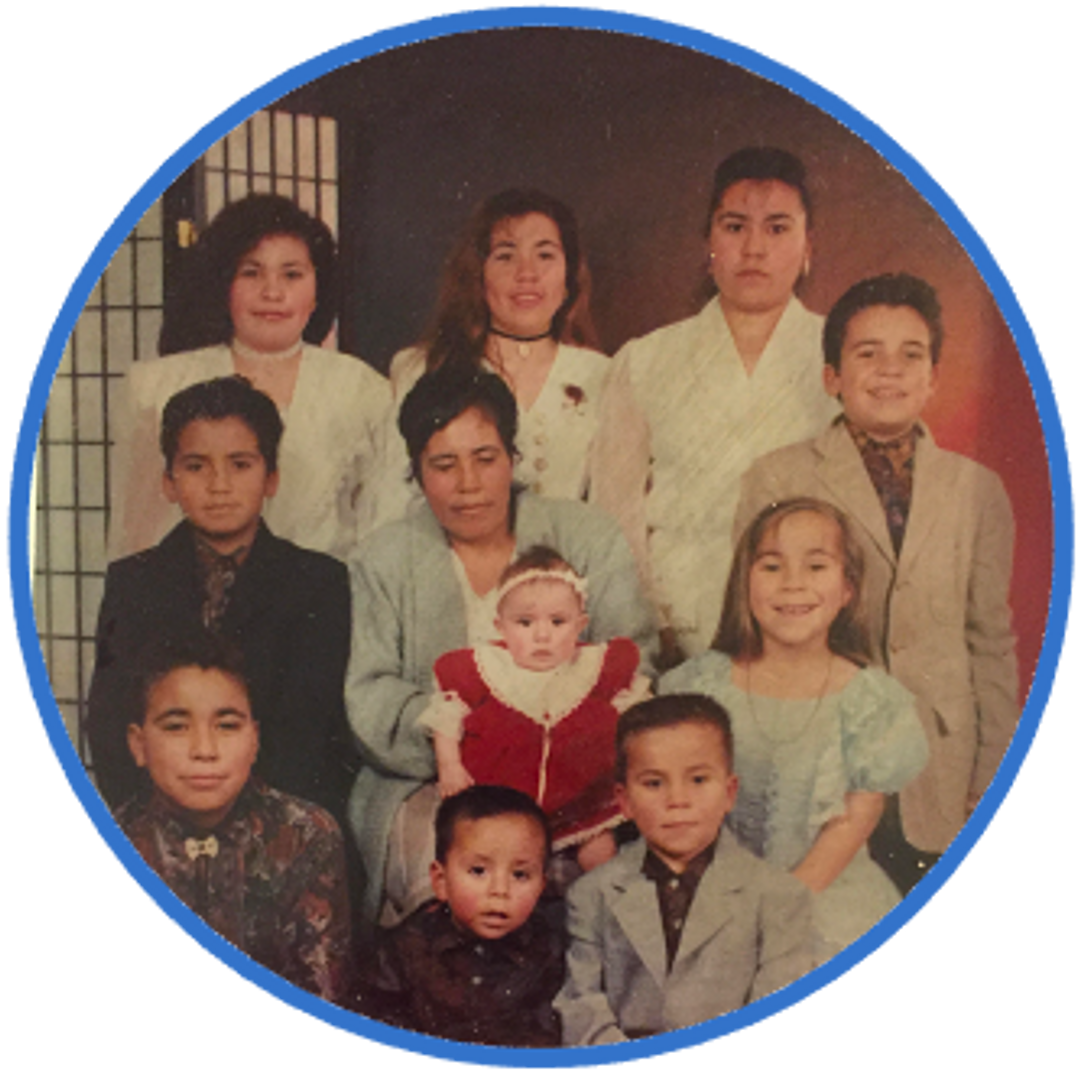
(Credit: Dr. Osvaldo Gutierrez)
What was the biggest obstacle you had to face along your STEM journey?
The obstacles I faced were not really about how challenging the courses were. I think that if you really love something, you will still enjoy the process even if you get a bad grade. In my situation, the biggest challenge was financial. Undocumented immigrants are very limited in terms of how to pay for college. You can’t get loans, you shouldn’t be working, and you might get deported at any given point. During graduate school, I became a server, bussed tables, and made a little more money with tips. I also had to do a lot of tutoring in order to support myself and pay for school.
The other thing that was challenging for me was finding a community. I didn’t find a lot of people who looked like me in the scientific field. That made me feel that maybe I was not welcome. We have a similar problem with women in STEM. 15 years ago, women weren’t really in PhD programs as prevalent as they are now. But, given the success of women in chemistry today, I think we can continue to achieve success and diversify science by slowly making progress.
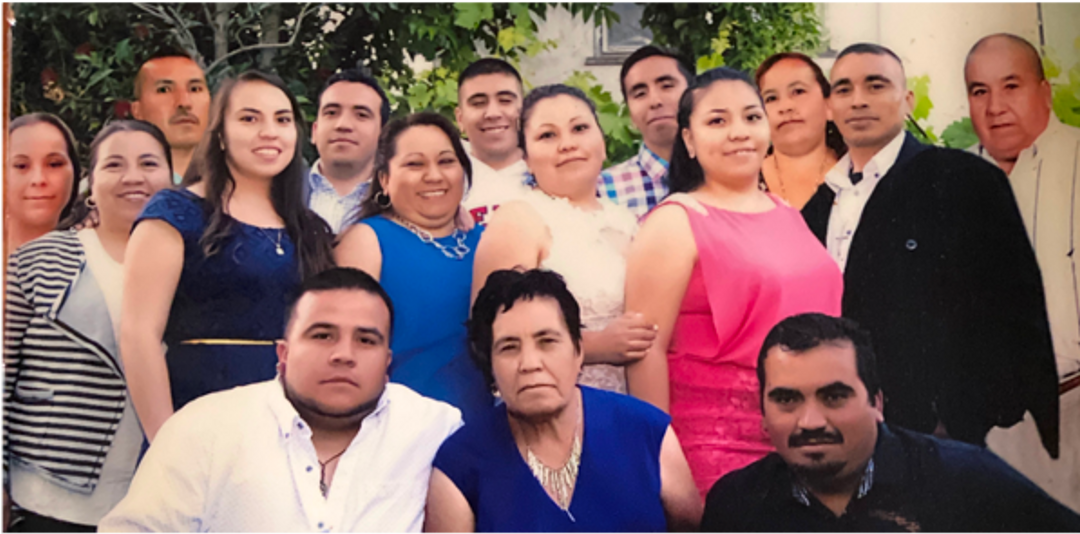
(Credit: Dr. Osvaldo Gutierrez)
How did your experiences in college and graduate school influence your career today?
I initially did not know what I wanted to major in. I just knew that in order to go to medical school, I needed to find something in the sciences. At that point, I was lingering between a math major and a chemistry major because I liked those two subjects and I knew that I had to be strategic about getting into medical school. I saw that a lot of people going to medical school were either biology majors or biochemistry majors. I wanted to differentiate myself. I decided to go with chemistry because at the community college I went to, if you want to become a chemist, you have to take the same courses as someone who wants to be a physicist, a biochemist, a biologist, a math major, and an engineer, in addition to the chemistry major requirements. It took me six years at the community college to catch up.
UCLA was much more expensive, so I wanted to graduate as soon as possible. I managed to graduate in less than 2.5 years with my B.S. and M.S. by cramming 20 to 30 units every single quarter. I didn’t care if I was taking 10 courses every quarter, but I needed to figure out a way to get out.
When I was applying to medical school, I already had a really good MCAT score. But I was running into issues when applying to Stanford’s Medical School because they asked for a social security number and if you’re domestic or international. When I called them, they said I needed to be classified as international, but then I’d have to leave the country in order to get a visa. In order to get the visa, you need to show that you have enough money in your bank account to pay for medical school. In my family, my dad was making $25 an hour. We didn’t have anything close to even paying for a tenth of the tuition. At that moment, I kind of switched gears. It was a life changing event.
Because I was not solidified with medical school yet, I figured, why not do chemistry? For my PhD, I really wanted to, again, differentiate myself amongst everybody else. If I wanted to be different and do more computation, I knew that I’d have to become a computational chemist. I also figured that if I started blending more things and becoming more interdisciplinary, I’d have a better chance of maybe discovering something new or tackling problems in a way that might be different from everybody else.
When I went to UC Davis, I started doing some experiments. However, the fact that I was still undocumented continued to limit me. If there was an accident in the lab, then the university was going to be liable. I didn’t want the university to find out that I didn’t have a social security number, that I was undocumented, or that I didn’t have medical insurance. It would be a whole lawsuit. Instead, I decided to focus more on the computational side.
When I went to the University of Pennsylvania as a postdoc, I started doing more experiments. At that point, I was able to get my social security in line. Barack Obama’s DACA program allowed people like myself to get a social security number and a work permit. I was then able to do a lot of fun things, combining both the experiments and the computation to do new chemistry.
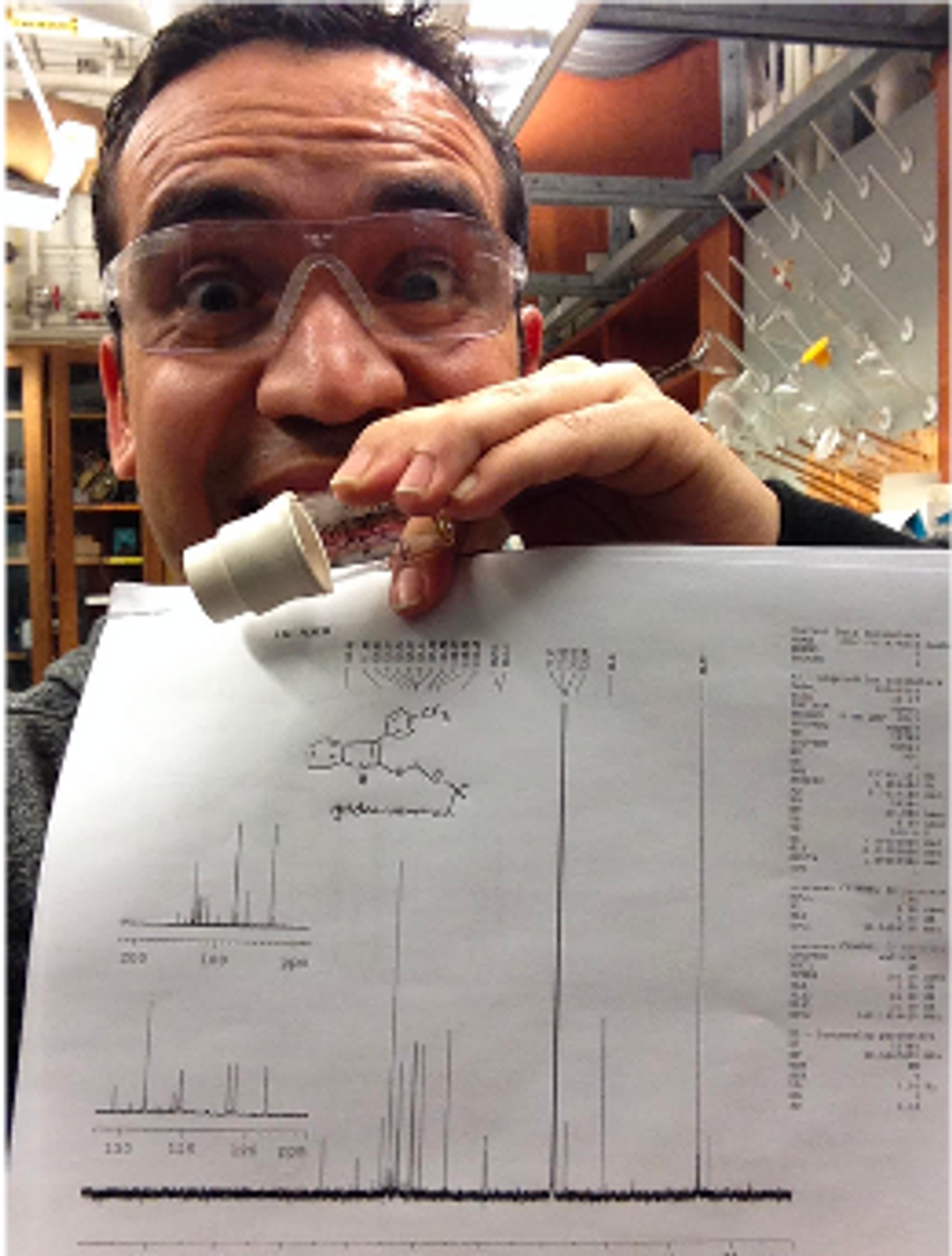
(Credit: Dr. Osvaldo Gutierrez)
Can you share about a current project your lab is working on?
We have a very exciting project that is currently under review in one of the top scientific journals. It has to do with developing cheaper methods to make medicines. Typically, people use very expensive catalysts, for instance, transition metals like palladium, to make carbon-carbon bonds to make medicines.
My mom died of breast cancer. Chemists can’t make the medication she used; it actually is not practical. Taxol is really made using biological tools. If chemists want to advance in the next 50 years, we need to start thinking about creative ways to make molecules. By creative, I really mean sustainable. You have to use sustainable metals that we can quickly get access to.
For us, it’s iron. Iron is everywhere. You could find it in bridges or in the rust that develops in your house. We’re trying to use iron to make carbon-carbon bonds, and I think that it’s going to be a strategy in the future that could have very practical potential implications in not only making new kinds of medicine more rapidly, but also a lot cheaper. It’s also sustainable; when you use iron in the lab, you don’t need to dispose of it in some special way because it isn’t highly toxic. Imagine if the only way to make a medicine was using uranium; that would pose a lot of problems. We’re trying to move away from things of that nature. Ideally, we would use proteins since that would be the best organic way to make medicines. But, we’re using something similar, which is iron chemistry to build those molecules.
You may be asking why chemists in the past 70 years did not think of this method. The answer is that they have, but back then, it was all trial and error. We now spent a lot of time trying to investigate how things work. Once we understand how things work, we’re able to quickly modulate the system to make it work as we like. For us, understanding how things work is becoming more impactful rather than mixing things together and hoping that it works. In chemistry, it’s still trial and error to a large degree. For us, we are trying to understand how things work, and then start testing things.
“CHEM-IS-TRY. You have to try in the lab to see if it works.”
Dr. Osvaldo Gutierrez
Can you walk us through a typical day in the life?
Pre-COVID, my wife and I would drop our daughter off to high school, have some coffee, and then split up in different ways. I’d go to the lab, answer emails, and think about where we were in the projects. I would meet up with students individually, maybe one or two a day, to see where they are in their project. At noon, I’d have lunch. At 1:00 or 1:30 PM, I would work on more projects and grants. I would maybe write one paragraph or make one figure. At around 2:00 PM, I would go to the gym and come back. Then, it was time to make sure that everything in the lab was great, pick up my daughter with my wife, and go home. After dinner, if there are some things that I need to learn or a paper I need to fish, I would work on that for one or two hours.
Is there anything that surprised you about your field?
I was surprised by how friendly and welcoming the community really is. Just because you have a different background or you don’t look alike, it doesn’t mean that you’re not going to be welcomed. Scientists work on diverse chemical problems, so, in a way, they also like diverse people who have unique backgrounds and perspectives. I found my community to be extremely accepting, welcoming, and supportive. That has been amazing. I’m also trying to do my part and be there as much as I can for other people who might need advice, guidance, or an opportunity to be in the lab.
What is the most rewarding aspect of being a chemistry professor?
I enjoy seeing people grow, mentoring students, and building a community while still doing high caliber scientific research. Helping students achieve their personal goals is the most satisfying thing for me. I had one student who was about to drop the PhD program, but this past week, we celebrated that he got his PhD and he’s gone to NIH to work as a postdoc researcher. Another student got a postdoc offer at the University of Pennsylvania. For me, the most rewarding aspect is providing opportunities to my students and seeing how they grow in terms of assignments. It’s amazing to see all the ideas the students come up with.
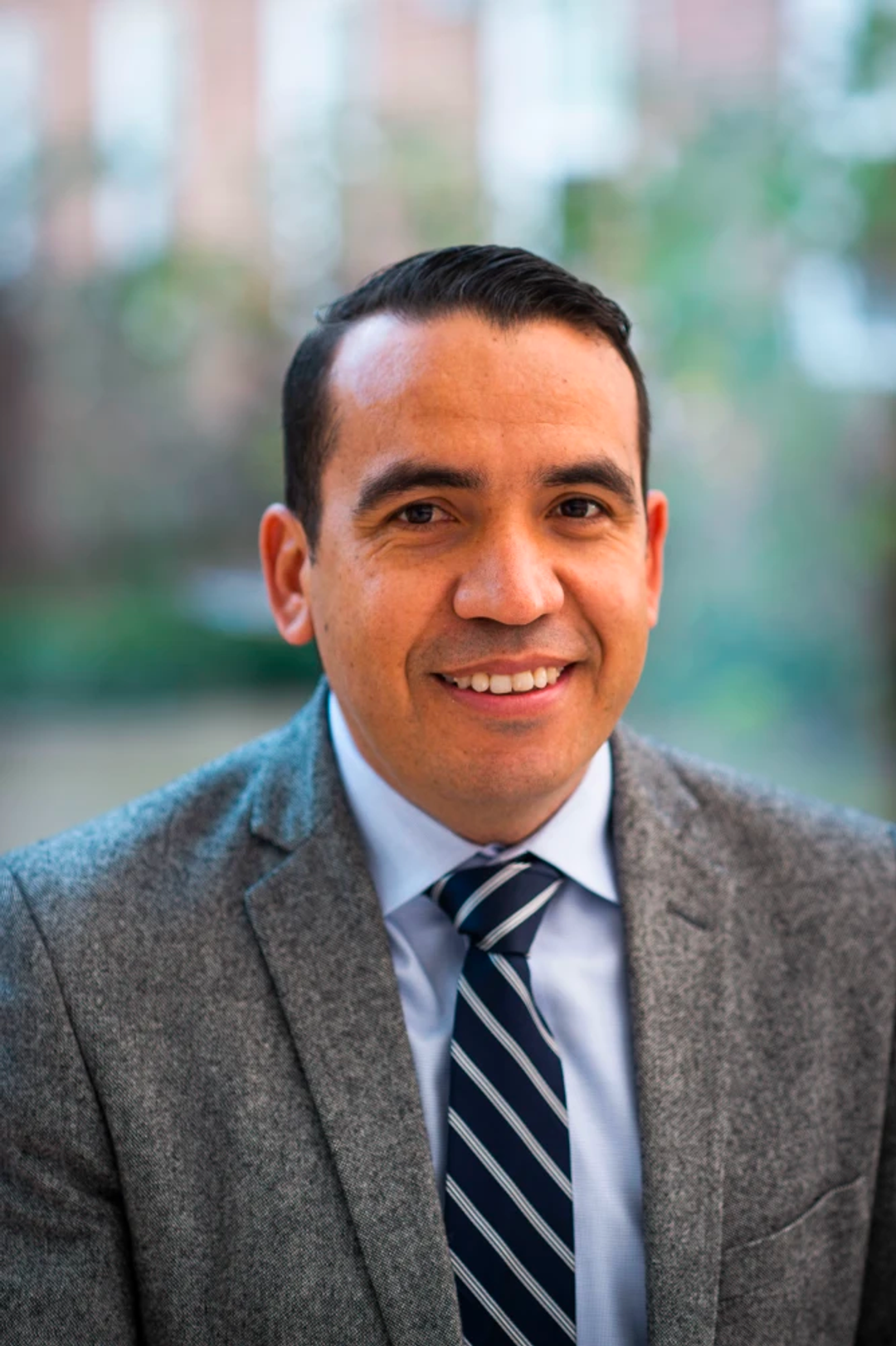
(Credit: Dr. Osvaldo Gutierrez)
What is the most challenging aspect of your career?
The most challenging aspect now is dealing with all of the administrative and political bureaucracy that goes with science. It’s sometimes discouraging, and you have to play a slight game of politics. For example, within your group, some people think that they did slightly more than others. How do you deal with who’s the first author or second author? It also applies to dealing with administrators and colleagues in the department or submitting your paper to a top, medium, or lower tier journal. You have to consider how that’s going to be viewed by the community.
Social media is also tricky; sometimes, you have an idea of how you should present yourself, but then you quickly realize that it’s probably not the best strategy or that it’s going to have some consequences.
What advice would you give to a student who is interested in going into STEM?
Believe in yourself that you could become a scientist and that you could change the world. I always think that’s unique about being a scientist: you’re creating things, you’re creating something new, and even if you become a medical doctor, maybe you won’t create new things but you’ll play the role of helping other people. If you want to develop new tools to make medicines or do science or anything, science is going to be very welcoming to you and that the community is going to be very welcoming to you.
At the end of the day, it’s about having fun with it. To me, being a professor and scientist is not a job; it’s more of a sport. There are some challenges and work to it, but you’re always having fun. You also choose your own schedule. Sometimes you work 1 hour, and sometimes you work 10 hours. It’s very flexible.
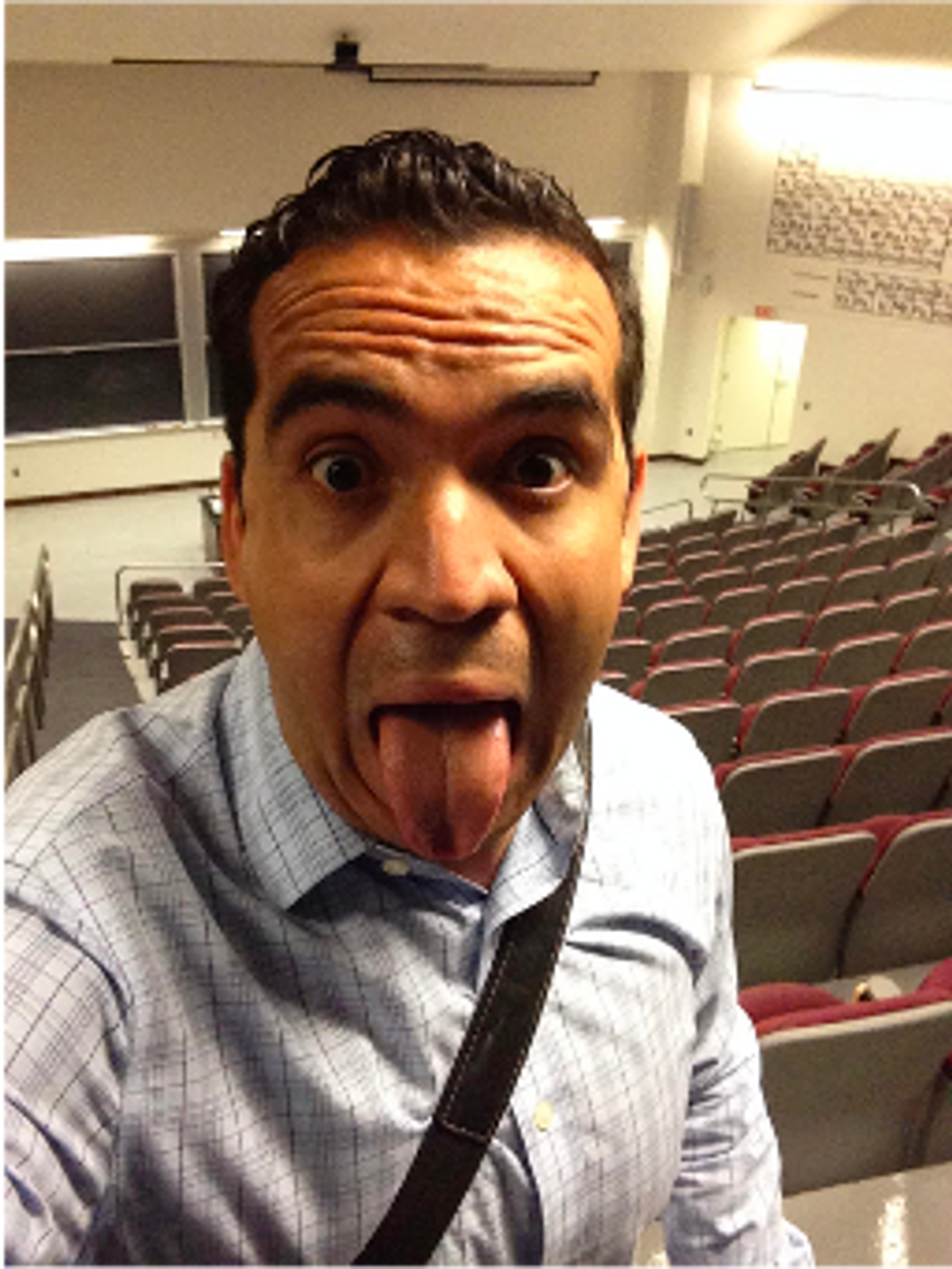
(Credit: Dr. Osvaldo Gutierrez)
Do you have any recommendations for students who are interested in going into chemistry?
If you want to go into chemistry at this age, get involved with developing knowledge. Look for chemistry speakers and chemistry advice on Youtube. First, immerse yourself with people and one-on-one advice, rather than programs. Have fun watching videos and learning about the things a chemist, biologist, or biochemist can do. Hear about their trajectories. Find people who have followed paths that are similar to your goal path. You can follow that path and make it unique to yourself. So, listen to people on YouTube as your first starting point